
Support EcoJustice Radio with a Tax-Deductible Donation
Subscribe to EcoJustice Radio: Apple Podcasts | SoundCloud | Google | Spotify | Stitcher | YouTube | Links
In this episode of EcoJustice Radio, host Jack Eidt speaks with Ryan Killackey, filmmaker of the award-winning documentary film set in the Ecuadorian Amazon, “Yasuni Man.” Plus, Zoe Cina-Sklar, campaigner for the #EndAmazonCrude effort by Amazon Watch, shares how California communities can play a powerful role in the fight for a just transition off fossil fuels.
STORY: Amazon Defenders Part Two: Criminalizing Activism – The Steven Donziger Case
More Info: http://www.yasuniman.com/
YASUNI MAN is the award winning documentary feature about a conflict raging deep within the Ecuadorian Amazon. Once under siege by missionaries seeking to civilize them, the Waorani people battle oil industry operatives and their own government in a fight to survive. Join filmmaker Ryan Patrick Killackey and his Waorani friend Otobo as they embark on an expedition into the most biodiverse forest on Earth. Witness what may be lost as oil companies encroach, human rights violations run rampant, and a forest Eden is destroyed – all for the oil that lies beneath Yasuni.
Featured on National Geographic Radio and TV, BBC Radio, PBS and The Guardian, Killackey’s Yasuni Man traveled the world, earning 35 official selections, 23 nominations, and 15 award wins. The film screened in 16 countries worldwide and partnered with the United Nations CINE-ONU program. Translated into 7 languages for it’s streaming release, Yasuni Man continues its effort to raise awareness around the exploitation of indigenous peoples in the Amazon, biodiversity and habitat loss, and the unsustainable exploitation of non-renewable natural resources.
Supported by a diverse coalition of NGOs and a powerful group of celebrities, a portion of the film’s proceeds will go to the Amazon Emergency Fund, a fund created to fight the outbreak of COVID-19 in Amazon indigenous communities – https://www.amazonemergencyfund.org/
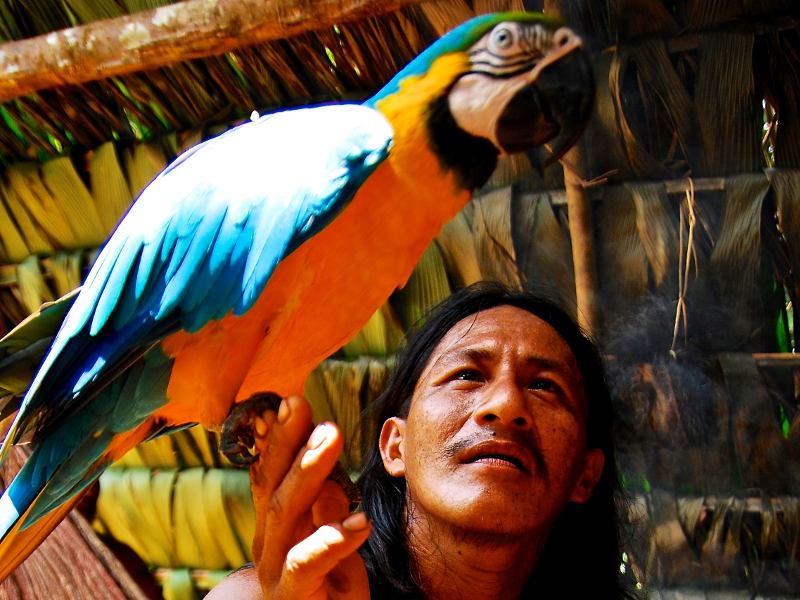
GooglePlay
(in English, Spanish, French, German, Portuguese, and Japanese)
https://play.google.com/store/movies/details/Yasuni_Man?id=DzYRWAUEknE.P&hl=en
Amazon
(in English and Closed Caption)
https://www.amazon.com/gp/video/detail/B08CVRTWBF/ref=atv_dp_share_cu_r
iTunes
https://itunes.apple.com/us/movie/yasuni-man/id1523042123?ls=1
(in English and Spanish)
Vimeo
https://vimeo.com/ondemand/yasuniman
(in English)
httpvh://youtu.be/TmbkydKi6BA
How the Award-Winning Documentary ‘Yasuni Man’ was Born
It started with a passion for amphibians. Something about their eyes, Ryan Killackey said. It was an interest in amphibians that led Killackey to a degree in terrestrial wildlife biology in Montana as an undergraduate, and then on to various biological research projects, from wolverine populations to fish dynamics, bobcats, snail and slug work, then settling into a position running an Atlantic amphibian breeding monitoring project for the state of Montana over the course of six years.
Eventually, Killackey became somewhat disenchanted with the degree of disruption he found in some of his conservation projects, and decided to learn more about biodiversity in one of the earth’s naturally richest regions: the Ecuadorian Amazon. He landed at Sani Lodge, an ecotourism lodge that happened to be on the North side of the Rio Napo, just opposite Yasuni National Park.
In late 2006, Killackey went into Yasuni for the first time, leading him to discover “firsthand the impact of the extractive industry, specifically petroleum production, on the Amazon ecosystem.” In 2009, a friend introduced Killackey to Otobo, a Waorani gentleman who was working to share what was happening to his home and community with the world. Otobo invited Killackey into his community called Boanamo, home to about 20 people, the majority Otobo’s immediate family. And that’s where Yasuni Man picks up.
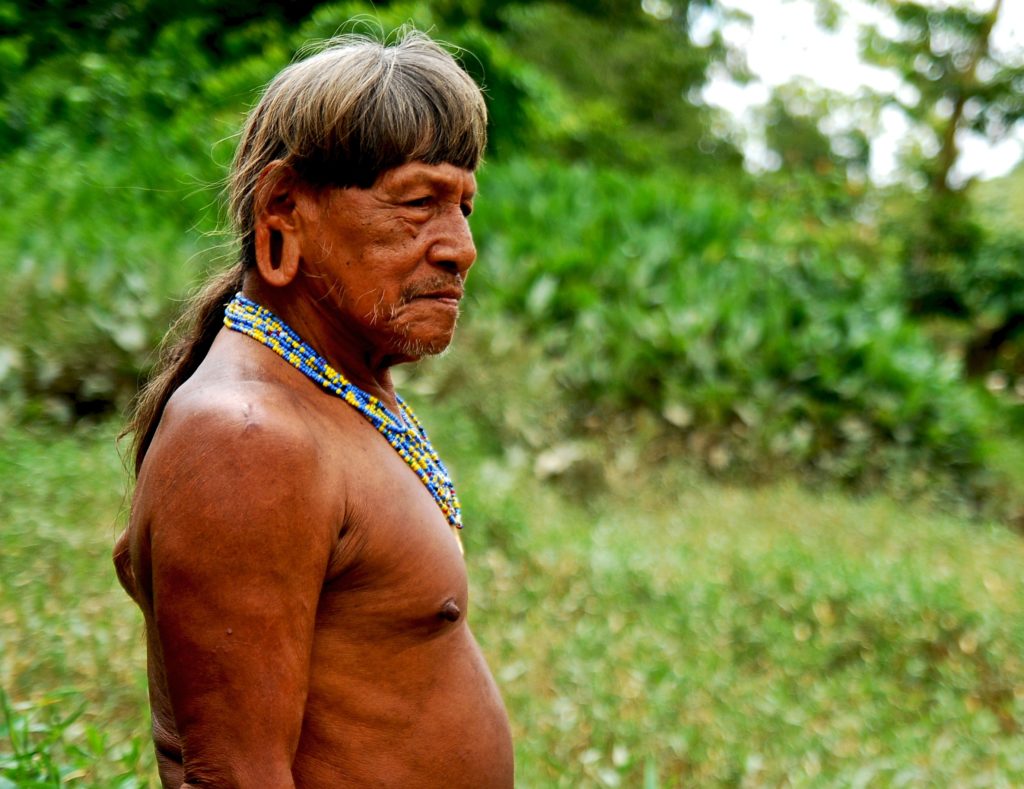

Biodiversity, Extraction and Destruction in Yasuni
The unique location of Yasuni, a meeting place where the Amazon rainforest, equator, and Andes converge, consists of Yasuni National Park, the Waorani Ethnic Reserve, and a buffer zone. Biologically, this convergence means that amphibians, birds, mammals, and plants all reach peak diversity together and coexist in rare form, making it by all accounts the most biologically rich and diverse regions on earth.
Here, the Waorani live in their ancestral land of Yasuni, including two clans remaining in voluntary isolation and committed to protecting their communities from contact with the outside world.
Below Yasuni lie Ecuador’s largest untapped oil fields, setting the stage for the conflict that has pitted biodiversity and human rights against extractive industries and human consumption for decades.
Through the meeting and welcome of Otobo and his family, it was this access that Killackey discovered the opportunity to not only share the untold story of the people in direct conflict with the petroleum industry, but also document the biodiversity of a region never before assessed by outsiders. He was able to conduct two major biological research projects, bringing in biologists to do rapid assessments in the backyard of the Boanamo community. The first study, recording 362 species of birds within a 16-day survey, was published in Neotropical Biodiversity in March of 2018, allowing the film to live on in a publication documenting the region’s biodiversity within a previously unexplored area.
Californian Oil Consumption Driving Yasuni’s Destruction
California refines an average of 170,978 barrels of Amazon crude every day, with the El Segundo Chevron facility accounting for 24% of the U.S. total alone. This study, conducted by Amazon Watch, concluded crude oil imported to the U.S. from the Amazon, most of which gets refined in California, is driving expansion of oil operations into the rainforest.
This is crucial to keep in mind while watching Yasuni Man, as viewers are privy to an intimate welcome by the Waorani community and the deeply rich landscape Killackey captures, alongside the human rights and ecological tragedy that simultaneously unfold.
“When you look at Yasuni on the small scale, there’s no place that matches its biodiversity… It really should be one of the most heavily protected areas of the world, a high priority of every country in the world,” Killackey stated.
It doesn’t take long to discover that is not the case. Both the people and land face destruction by the extractive industry, and it’s impossible to ignore this link to California’s oil consumption and global oil dependence. “The fate of the people in Yasuni is symbolic of the fate of the world,” said Ecuador’s Ministry of Justice Diego Falconi in the film, and is a fate that Californians must acknowledge their role in.
“If you look at those numbers, technically California is the biggest single contributor to the destruction of the world’s most biodiverse forest,” Killackey stated.
Take Action to Protect the Amazon
What’s to be done? “Ultimately, taking a long look in the mirror and self reflecting is really the biggest single thing that you can do to protect a place like Yasuni,” Killackey said. “It comes down to our human consumption. You have to change your own ways, and that is a really hard thing to do.”
Killackey also recommended supporting NGO’s focused on protecting the people and land, like Amazon Watch’s #EndAmazonCrude campaign to keep oil in the ground. Ecotourism in these areas, while he acknowledges not an ideal solution, is also considered a better alternative for the people of the region than petroleum production.
And the most immediate action you can take? “Visibility,” Killackey said of the film, for people to watch it and spread the message about what is happening, and what is at stake.
Join Amazon Watch’s campaign to #EndAmazonCrude:
www.EndAmazonCrude.org
Interview by Jack Eidt from SoCal 350 and WilderUtopia
Host and Engineer: JP Morris
Executive Producer: Mark Morris
Music: Javier Kadry
Episode 16
Updated 3 September 2020



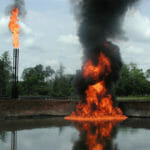
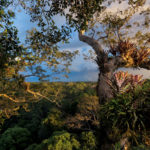
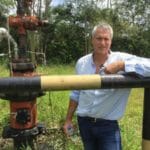
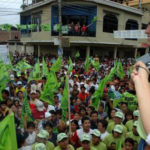
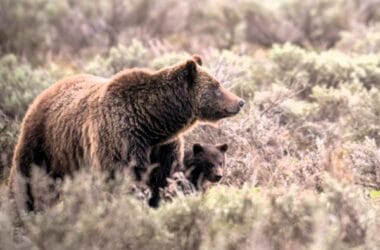
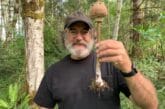




Pingback: Amazon Defenders Part One: Protecting Biodiversity from Big Oil
Pingback: Amazon Defenders Part Two: Criminalizing Activism – The Steven Donziger Case
Pingback: Criminalizing Activism – Steven Donziger vs Chevron
Pingback: Amazon Defenders: Rainforest Biodiversity and Big Oil with Paul Paz y Miño
Pingback: Justice for Ecuador: Steven Donziger vs Chevron Oil - WilderUtopia